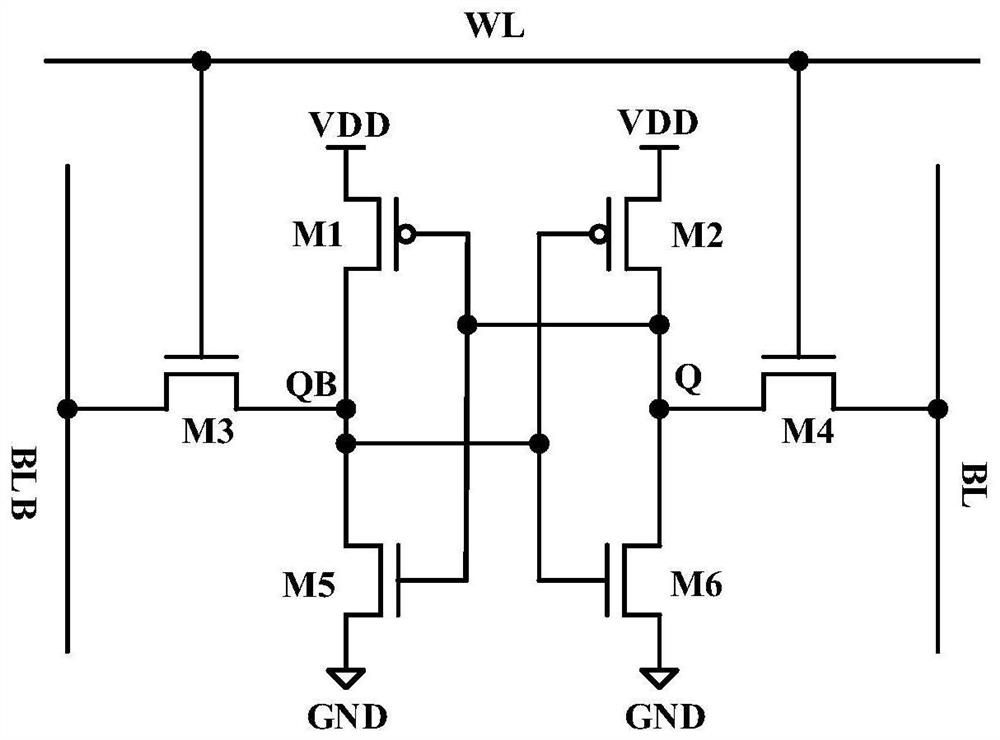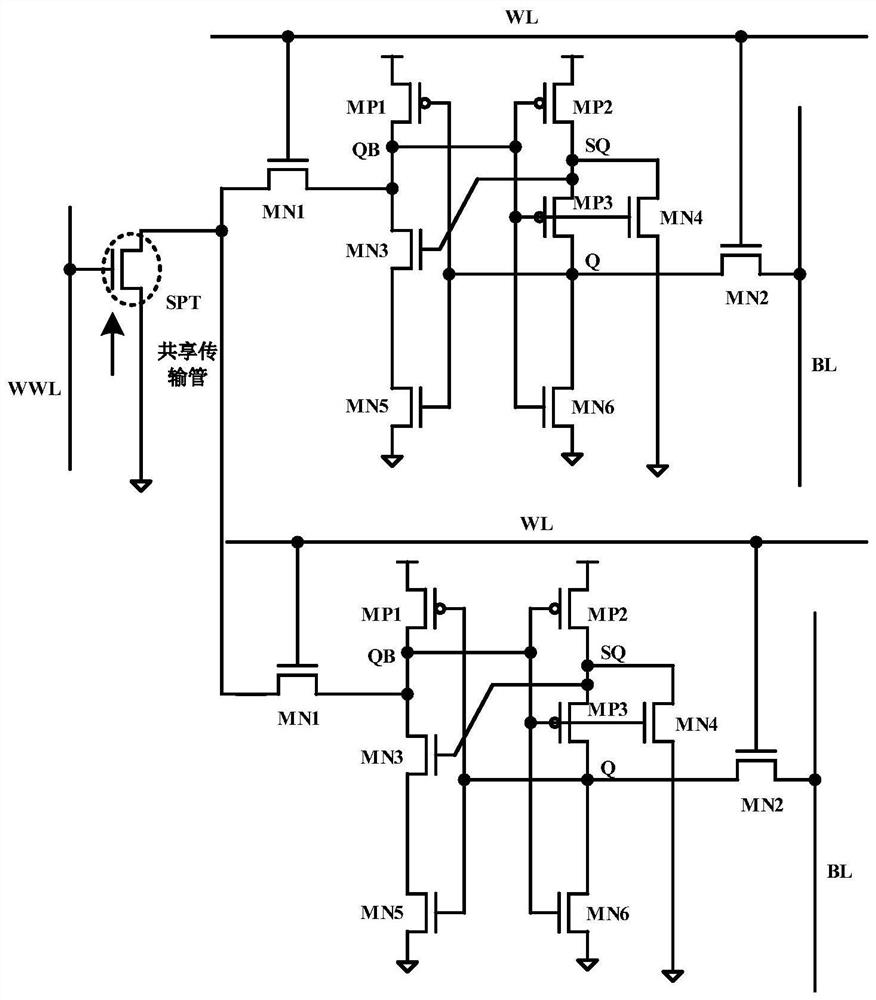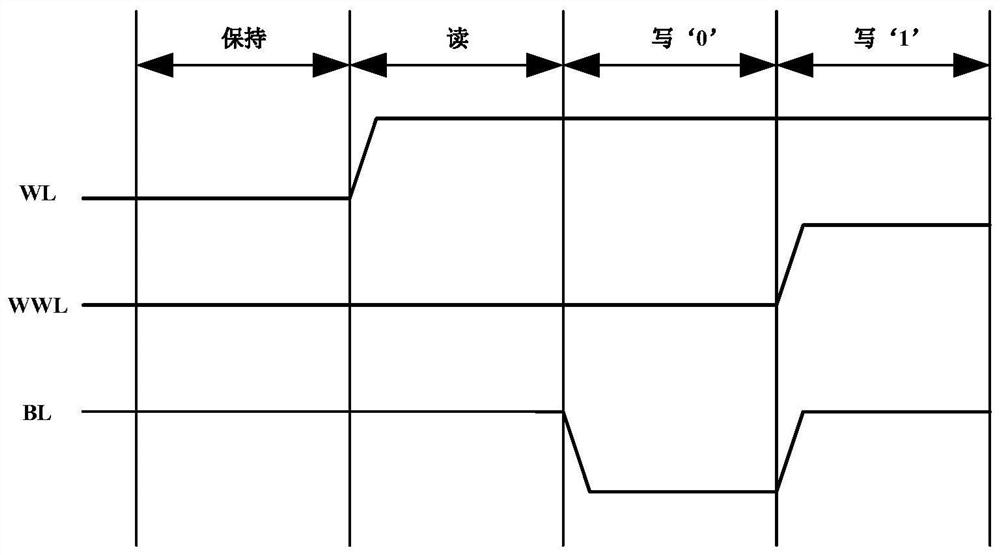A sram memory cell circuit with high read noise tolerance
A storage unit circuit and noise tolerance technology, which is applied in the direction of information storage, static memory, digital memory information, etc., can solve the problems of unrealistic design goals, difficult writing operations, etc., to improve the problem of soft error rate and solve the problem of semi-selection problem, effect of high read noise margin
- Summary
- Abstract
- Description
- Claims
- Application Information
AI Technical Summary
Problems solved by technology
Method used
Image
Examples
Embodiment Construction
[0020] The present invention will be described in detail below in conjunction with the accompanying drawings and specific embodiments.
[0021] The SRAM storage unit circuit proposed by the present invention has a 9T structure, including a first NMOS transistor MN1, a second NMOS transistor MN2, a third NMOS transistor MN3, a fourth NMOS transistor MN4, a fifth NMOS transistor MN5, a sixth NMOS transistor MN6, The first PMOS transistor MP1, the second PMOS transistor MP2 and the third PMOS transistor MP3, the gate of the first NMOS transistor MN1 is connected to the gate of the second NMOS transistor MN2 and the word line WL, its drain serves as a shared transmission terminal, and its source The poles are connected to the gates of the second PMOS transistor MP2, the third PMOS transistor MP3, the fourth NMOS transistor MN4 and the sixth NMOS transistor MN6 and the drains of the first PMOS transistor MP1 and the third NMOS transistor MN3; the second NMOS transistor MN2 The drai...
PUM
 Login to View More
Login to View More Abstract
Description
Claims
Application Information
 Login to View More
Login to View More - R&D
- Intellectual Property
- Life Sciences
- Materials
- Tech Scout
- Unparalleled Data Quality
- Higher Quality Content
- 60% Fewer Hallucinations
Browse by: Latest US Patents, China's latest patents, Technical Efficacy Thesaurus, Application Domain, Technology Topic, Popular Technical Reports.
© 2025 PatSnap. All rights reserved.Legal|Privacy policy|Modern Slavery Act Transparency Statement|Sitemap|About US| Contact US: help@patsnap.com



